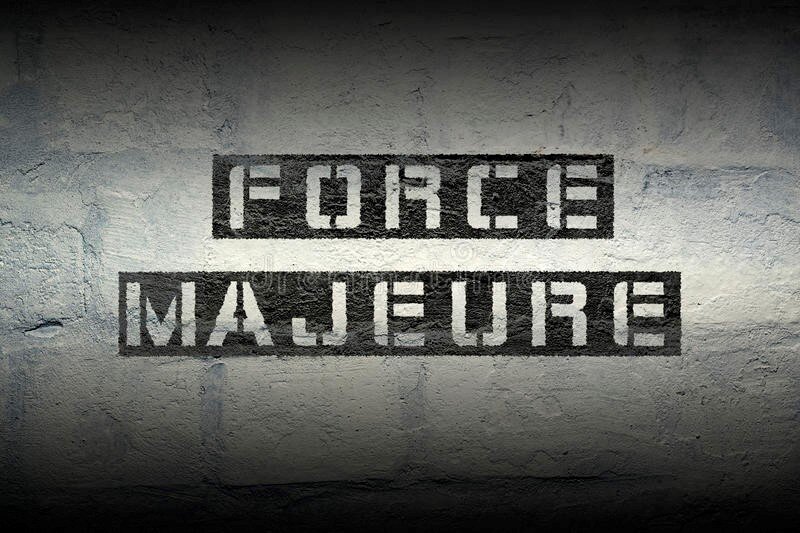
By: Matthew J. Schiller, Esq.
As society continues to grapple with the serious public health and wellness ramifications of the coronavirus (COVID-19) pandemic, there will inevitably be significant short- and long-term impacts on many (if not most) businesses and real estate operations. Short term impacts can include temporary business and building closures as employers, employees, and customers deal with illnesses, social distancing and/or quarantines. As a result, necessary goods and services may not be available on a timely basis for parties to operate their businesses and/or timely complete transactions. For example, in a real estate transaction, necessary vendors such as title companies, surveyors or environmental engineering firms may not have the staffing available to meet previously attainable timing demands to complete due diligence or tenants may be closed or working remotely, causing delays in the provision of required estoppel certificates. Moreover, there will almost certainly be significant supply chain disruptions, as many foreign and domestic manufacturing operations temporarily halt. As a result, necessary goods, materials and equipment may be unavailable on a wholesale or retail basis for an extended period. Such shortages will not only directly impact retail and business operations, but also construction schedules for new buildings and the ability of landlords and tenants to timely complete fit-out work and other planned improvements within spaces, delaying the commencement date of many new tenancies. Further, as public gatherings become increasingly restricted by federal, state and local authorities, there is a high likelihood that many public meetings such as planning and zoning board hearings will be cancelled/adjourned, resulting in material delays in obtaining necessary permits and other land use approvals.
While the health and safety of the public is always of the utmost importance, understanding one’s rights, obligations and liabilities resulting from the impacts of the coronavirus is also critical. Below are examples of certain contractual provisions and other issues that parties should be aware of as they attempt to address the many challenges presented by the coronavirus.
- Force Majeure
Force majeure provisions in contracts are intended to address the parties’ rights and liabilities (or lack thereof) in situations and events that cause “unavoidable delays” outside of their control. While frequently viewed as a “boiler plate” provision, force majeure provisions can vary greatly, and may have a huge impact on transactions delayed or threatened by the coronavirus. Accordingly, a careful review of any applicable force majeure provision must occur. To determine the applicability of a force majeure provision to a pandemic such as coronavirus, consider whether there is an express reference to epidemics, pandemics or the like (based upon recent outbreaks such as SARS, MERS or Ebola) in the contract or broad “catch-all” provisions (e.g., “all those situations beyond either party’s control, including but not limited to…”). If applicable, the force majeure provision will likely toll performance on a day-for-day basis for so long as the source of the applicable delay continues; however, it is critical to remember that the provisions likely will not toll rent or other payment obligations or permit the outright termination of a transaction or lease as a result of the delay. Rather, force majeure provisions are intended to protect against potential defaults or penalties that would otherwise be applicable due to a delay in performance.
- Material Adverse Change (“MAC”) Clause
Some contracts such as loan documents and purchase agreements will contain a “material adverse change” (or MAC) clause, which can provide certain contractual rights in the event of a catastrophic event (including termination rights). These provisions allocate risk based upon enumerated (often specific) changes that can impact a party’s performance under a contract. Therefore, if lenders or buyers are concerned that a pandemic such as the coronavirus could materially impact a transaction, language specifically addressing such circumstance should be included in the clause, as well as any contemplated rights and remedies as a result thereof.
- Insurance Claims
Many businesses will incur significant losses as a result of failed or delayed transactions and/or building or business closures due to the coronavirus. Such losses may be covered by insurance. For example, loss of income (sometimes referred to as loss of rents) coverage and business income (and extra expense) coverage (i.e., business interruption insurance) policies may be applicable if buildings are closed and businesses cannot operate due to social distancing and/or quarantines for extended periods of time. A careful review of policy terms and conditions should promptly occur to determine whether coverage exists with respect to any potential claims resulting directly or indirectly from the coronavirus as well as the specific policy requirements (e.g., notice) in order to ensure that any potential claims are timely and properly made.
- Frustration of Purpose
The doctrine of “Frustration of Purpose” is an equitable concept that can be argued to potentially excuse a party from performance under a contract due to unforeseen, significant changes in circumstances. Note, however, that this doctrine is not applicable solely if a party is merely attempting to get out of disadvantageous transaction. As the coronavirus is a pandemic of global proportions that is resulting in closures, social distancing and quarantines not seen in our lifetime, arguments that its impact (direct and indirect) frustrated the purpose of the contract may be viable; however, any such argument may be challenged and thus subject to a court ruling based upon the underlying facts and circumstances of the particular case.
- Building security/maintenance issues
Landlords and business owners should also be fully aware of the many other maintenance, access and other operational issues that can arise due to coronavirus contamination/social distancing/quarantine concerns. Closing a building and/or restricting access can potentially violate lease provisions regarding building hours and access as well as a tenant’s right to quiet enjoyment. Accordingly, a careful review of a tenant’s abatement, termination and/or self-help rights under a lease should occur upon the closure of any building. Moreover, on a practical level, landlords and tenants should also address cleanliness and sanitation issues in buildings, including the installation of signs encouraging that encourage hand washing and dispensers for disinfectant in restrooms and near elevators – all non-controversial actions and costs that may be incorporated into operating expense pass-throughs. Landlords may also want to review and amend their building rules and regulations should they wish to unilaterally address sanitation and maintenance requirements for the building to help ensure its tenants are not exacerbating public health concerns.
Matthew J. Schiller is a partner in the transactional real estate practice at Murphy Schiller & Wilkes LLP.

In summary, it is inevitable that the coronavirus will have a disruptive impact on businesses, properties and ongoing transactions. All parties should be sensitive to the realities of the pandemic, but also be fully cognizant of their rights, obligations and potential liabilities in connection therewith. MSW is prepared to assist its clients evaluate their contractual rights and obligations as we all attempt to navigate through the many new and novel challenges resulting from the coronavirus.
Murphy Schiller & Wilkes LLP (MSW) is a boutique law firm servicing the commercial real estate and construction industries. Headquartered in Newark, New Jersey, the firm represents a wide range of clients, including institutional, publicly traded real estate companies, international and regional lenders, national contractors and subcontractors, and family offices. The firm has been ranked as a top law firm by both Chambers & Partners and U.S. News & World Report.